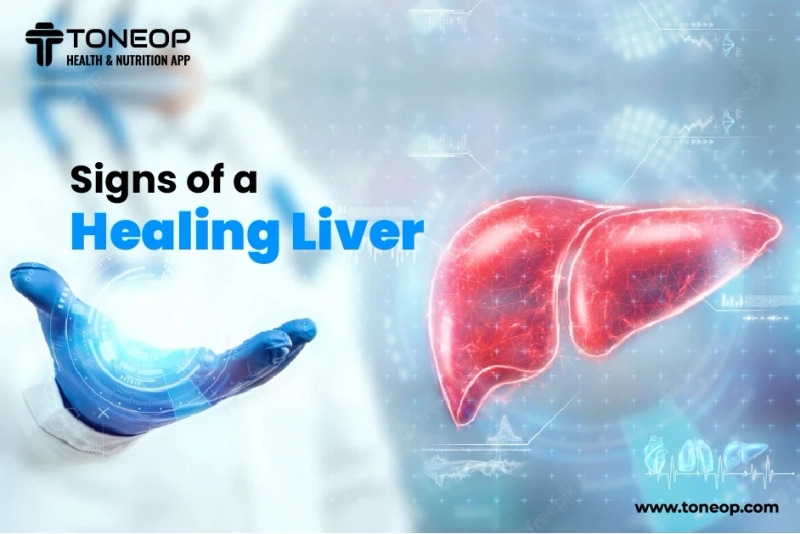Everyone should address their liver health, but how often do we do so?
In contrast to your heart, your liver does not beat when you are anxious. Similarly, when you are hungry, your liver will not grumble as your stomach does.
As long as your liver is operating correctly, you might not even be aware of it.
The liver is one of your body's most critical and vital organs, performing various unseen functions.
It has around 300 different functions, including producing chemicals that help digestion and food utilisation. Maintaining a healthy liver is challenging. It is continuously exposed to potentially toxic chemicals, heavy metals, and beverages.
How Does The Liver Work?
The liver is located directly below the diaphragm on the upper right side of the abdominal cavity, above the stomach, right kidney, and intestines. The liver controls the levels of most blood molecules and secretes bile. This assists in the elimination of liver-produced poisons.
All blood leaving the digestive system must first pass via the liver. The liver processes blood converts drugs into less toxic or more easily utilised forms, breaks down wastes, and produces nutrients. Bile production is one of the livers more than 500 vital functions.
Bile aids in eliminating waste and the digestion of lipids in the small intestine. It is also crucial for maintaining proper quantities of amino acids, the fundamental building blocks of proteins, in the blood.
What Can Cause Liver Damage?
Environmental toxins, including pesticides, infectious agents like hepatitis viruses, alcohol, and an inadequate diet, are the most detrimental to liver health (like too much sugar). In addition, environmental pollutants might inhibit the liver's capacity to detoxify and inactivate potentially harmful chemicals.
The toxic load on the liver impacts our general health, liver health, and the liver's capacity to function. An accumulation of toxins in the liver may result in weight gain, the development of nonalcoholic fatty liver disease, and liver damage.
How Do I Determine If My Liver Is Healing?
Nowadays, liver cleansing appears to be the norm. These schemes routinely employ diets, teas, juices, vitamins, supplements, or a combination thereof, and other purported weight-loss and liver detox to flush out toxins. Listed below are some indicators of improved liver function or a liver that is recovering
1. Weight Controlled
The health of your liver has a direct correlation with your metabolic rate. As a result, you may experience illogical weight changes. Due to liver illness, many alcoholics have ulcers and other digestive disorders that make it difficult to eat healthily, yet they continue to gain weight.
Even if you consume numerous calories from meals and high-carb beverages like beer, you may still lose weight. However, individuals may find it difficult to battle weight fluctuations; therefore, they must recognise the significance of physical health.
2. Better Eye Health
Toxins can accumulate in individuals with fatty livers as their condition progresses. This is because the organ's inefficiency prevents it from filtering the blood of these compounds, causing their quantities to rise steadily. As a result, these toxins can accumulate to the point where they become evident via the skin and the eyes.
Jaundice is an early warning sign of liver illness. Once your liver has recovered, your eyes will regain their lustre. In addition, the yellowish tone of your skin will diminish.
3. Regained Appetite
Increased hunger is a typical side effect of addiction treatment. In addition, individuals who make positive life choices, such as stopping drinking, smoking, or using illegal substances, may experience an increase in hunger as a side consequence.
However, this is distinct from the increased appetite you'll experience while your liver heals. When alcoholism impairs the liver's ability to digest food and filter poisons from the blood, you will lose your appetite.
4. Better Bloodwork
When your health begins to deteriorate due to your drinking, you may be required to visit a hospital or doctor's office for certain tests. The results probably indicated diminished liver function, and your caretaker likely advised you of the potential risks.
As soon as the healing process is initiated, the liver begins to repair itself. Improved colour perception and decreased pain are evident consequences of this procedure. However, it may be difficult to notice minor changes in the first few days.
5. Pain Reduction
The inefficient liver function causes the liver to enlarge and create more waste. In addition, the liver's limited capacity to develop rapidly produces pain. Although the discomfort may temporarily reduce or vanish, it frequently intensifies and persists for longer.
As soon as you quit drinking, your liver will begin to compensate for the lost time. Once the function has been improved, waste accumulation and can be minimised and can reduce inflammation. As a result, you will have significantly less discomfort over time.
The Final Say
Different types of liver disease necessitate distinct strategies for monitoring disease progression and potential reversal. Blood tests for transaminase are widely used to monitor liver inflammation. It is heartening when the numbers decrease.
To enhance your knowledge, go to the reference link.
0


